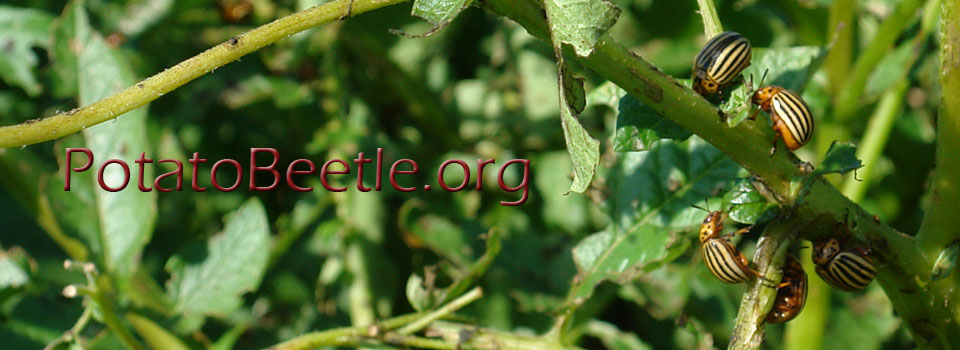Spit, J., A. Philips, N. Wynant, D. Santos, G. Plaetinck, J. Vanden Broeck. Insect Biochemistry and Molecular Biology 81: 103-116, http://dx.doi.org/10.1016/j.ibmb.2017.01.004
The responsiveness towards orally delivered dsRNA and the potency of a subsequent environmental RNA interference (RNAi) response strongly differs between different insect species. While some species are very sensitive to dsRNA delivery through the diet, others are not. The underlying reasons for this may vary, but degradation of dsRNA by nucleases in the gut lumen is believed to play a crucial role. The Colorado potato beetle, Leptinotarsa decemlineata, is a voracious defoliator of potato crops worldwide, and is currently under investigation for novel control methods based on dsRNA treatments. Here we describe the identification and characterization of two nuclease genes exclusively expressed in the gut of this pest species. Removal of nuclease activity in adults increased the sensitivity towards dsRNA and resulted in improved protection of potato plants. A similar strategy in the desert locust, Schistocerca gregaria, for which we show a far more potent nuclease activity in the gut juice, did however not lead to an improvement of the RNAi response. Possible reasons for this are discussed. Taken together, the present data confirm a negative effect of nucleases in the gut on the environmental RNAi response, and further suggest that interfering with this activity is a strategy worth pursuing for improving RNAi efficacy in insect pest control applications.
